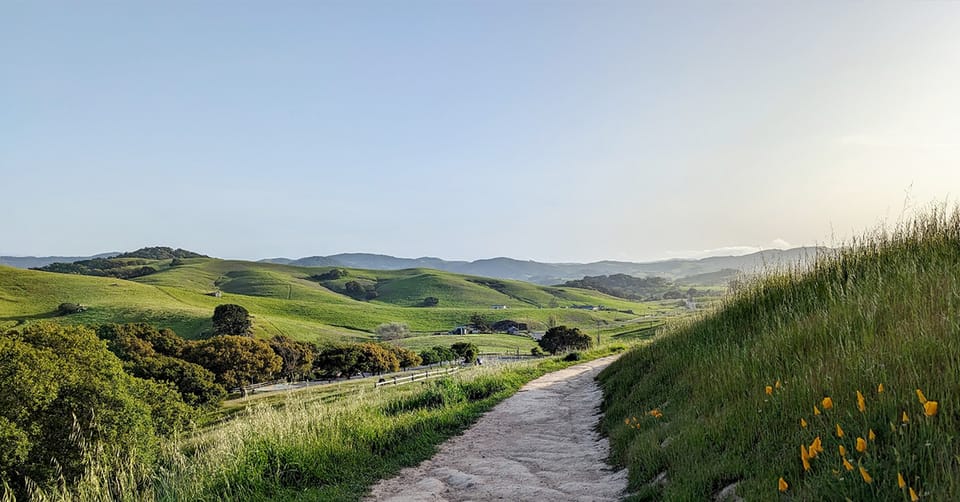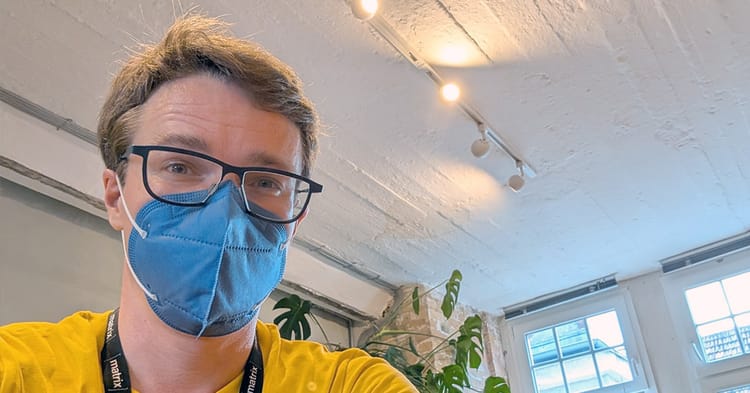Walking away from Facebook

In this blog post, I detail my approach to leaving Facebook and other Meta services, and share my rationale. But I do not aim to persuade, and I don't judge people for making different choices – everyone's circumstances are different.
If you're not interested in the "why," scroll on down to find the "how."
Why I'm ditching Facebook
I started this project by leaving Instagram in 2023, and at the time I explained that there was a fundamental misalignment of interests between us and for-profit social networks.
We know that for-profit social networks optimize for engagement, seeking to consume ever more time and attention. They do this by pushing our buttons, letting conspiracy theories, bigotry, and outrage swirl and designing their products to be addictive. Not only has Facebook been complicit in ethnic violence and election manipulation, its insatiable appetite for our data makes all of us less safe (cf surveillance capitalism).
Granted, my experience of Facebook has been a net positive. I use Facebook to stay in touch with friends and family, keep apprised of local events, and participate in special interest groups. I do a lot of curation and seek out well curated and moderated spaces, and I have the skills to avoid falling prey to misinformation, conspiracies, scams, and malware.
But. Not everyone has those skills, or even if they do, they don't necessarily have the time and energy to configure things appropriately, or to be constantly ducking and weaving through digital spaces. Increasingly, I see people I know coming to personal and social harm. They're falling down conspiratorial rabbit holes, becoming misinformed, or having their accounts and data compromised. And hell, I may be skilled but I'm not immune and some day I might slip up.
And things are about to get worse. Meta has just rolled back fact-checking, eliminated programs that support diverse hiring, withdrawn resources that benefited trans employees, and introduced new moderation policies that throw women, immigrants, and queer and trans people to the wolves.
This has given more people cause to re-evaluate their use of Meta's services, and has lit the fire for me to finish the journey I started two years ago. I'm seeing dozens of people I know leaving Facebook, and I find it exciting. Especially because Facebook is only valuable by merit of the network effect. It's valuable to us because there are other people we can reach there. That's also what makes it hard to leave.
Each time someone leaves, it becomes easier for others to leave, too. So that's what I'm doing. The latest changes have set the temperature on course to boil, and this frog is jumping out of the pot.
The current exodus may just be a small dent in Facebook's overall user base, but this is how it starts. Someday, Facebook will join the dustbin of history like every other for-profit social network that came before it.
It's really not a question of if we all move on from Facebook, it's a question of when. Now works for me!
How I'm leaving Facebook, Instagram, Threads, and WhatsApp
The biggest project for me is adapting to life without Facebook. For every other thing Meta offers, I trivially found analogs that worked well for me.
Before I describe how I'm approaching things, I want to clarify my end goal:
At the end of this exercise, I will still have accounts – to mitigate impersonation scams – and still be obligated to use Meta Business Suite as part of volunteer and professional responsibilities. But my accounts will be dormant, with sign posts to let people know how to get in touch with me.
Leaving Instagram was relatively easy. Its feature set is narrow, I had avoided using it for messages, and I never did get into the habit of scrolling through the feed there. I found what I wanted in Pixelfed – which happens to be nonprofit, decentralized, and open source.
Leaving Threads will also be relatively easy. I created an account but have never really used it. Its feature set is also narrow, and can be matched by pretty much any microblogging tool. I prefer Mastodon, which speaks ActivityPub (like Pixelfed) and is both nonprofit, decentralized, and open source. But many folks may find Bluesky easier to get started with. Bluesky is for-profit and centralized, and ultimately has the same vulnerabilities as Facebook and Twitter, but it's still an improvement.
Leaving WhatsApp won't be hard, as there are very few people I use it to communicate with – and Signal is basically a drop-in replacement. Bonus: Signal is run by a nonprofit, is end-to-end encrypted, and will feel familiar to anyone who has used a text messaging app. Better yet, it's cross-platform, so you can use it on your phone and your laptop or desktop. I also really like using Matrix, which is decentralized, but it's not a drop-in replacement right now.
Leaving Facebook
OK, so... about Facebook. Leaving Facebook is hard, there's no denying it. There is simply nothing that comes even close to being a 1-to-1 replacement. But most of us grew up without Facebook and got by, and I have many friends and family who either never joined or have already left, and they're perfectly fine.
Leaving Facebook requires some adaptation and creativity. But humans specialize in adaptation and creativity – we can do this!
Start by exporting your data
You can export a lot of your data, including your posts, photos, and videos, going back to the day you first registered your account. This can take some time and disk space. I've been on Facebook since 2005 and it took about 4 days from requesting my export to being able to download it. All up, it was about 8GB of data.
Here are Facebook's instructions for exporting your data.
Remove the apps from your phone
Facebook is literally designed to be addictive, so give yourself some time to make the transition and set yourself up by success by introducing friction: delete the apps! As a bonus, Facebook will suddenly have that many fewer hooks into your private data. You can still use Facebook on your phone by logging in from your browser, and I do, but ... let's try not to.
Here are Google's instructions for removing apps from phones that run Android.
Here are Apple's instructions for removing apps from iPhones.
Start exploring alternatives
What is it that you use Facebook for? Reflect on your personal use case and start exploring alternatives. Here are my uses:
- Stay in touch with people, especially distant family and friends
- Keep apprised of local events
- Participate in special interest groups, like gardening, "buy nothing" exchanges, local foodies, and meme groups
Staying in touch with people
For #1, there are so many options. It's honestly a bit overwhelming, but humans are well practiced at this and I'm confident we'll all figure this out.
I'll stay in touch using a mix of Mastodon, Bluesky, email, texting, phone calls, video chats, and writing letters. Some people also have a personal blog or mailing list I can subscribe to, and I've set one up for myself as you can see – Ghost is a great platform for that. I also set up a personal contact manager, Monica, which I use to keep track of contact info and remind me to stay in touch and when their birthday is coming up.
Find out about local events
For #2, I can follow community and local newspaper event calendars, subscribe to the email newsletters of the people and organizations that put them on, and just hear about things. I'm letting go of the feeling that I need to be one of the first people to know about all that's happening. Less fear of missing out, more joy of being present where ever I am.
Participate in special interest groups
For #3, I'm finding that Reddit and sometimes even Nextdoor provide decent alternatives. I've been delighted to see that several Facebook groups I'm in are already setting up shop elsewhere. I haven't found replacements for all the groups I care about, but I'm making progress. I've cataloged the ones that matter to me, so I can revisit this every so often to see if they've emerged outside of Facebook.
Exchange info and let folks know how to get in touch
Having set myself up on some alternatives – whether or not they're my forever home – I'm letting people know via Facebook and other Meta services. I'm also going to be updating my profile to mention those things, and making a final post that points to them, a post which I'll pint to the top of my profile.
If you want to be thorough, you can export a list of your contacts and start reaching out to the folks who you want to stay in touch with and for whom you don't already have alternative contact info. I've found having my personal contact manager, Monica, to be extremely helpful with getting this sorted. I don't really trust my phone's approach to managing my address books, but that might be sufficient for you.
I might take that thorough approach in the end, but since I've already exported my data, I feel like that's something I can approach incrementally over time rather than treat it as a blocker to leaving Facebook.
Get settled in to make the alternatives stick
As I reach out to people, I'm learning about where else I can reach them. And as I find them on other networks, I'm looking at who they follow and who is following them as a way to find people I missed.
I'm also seeking out authors, journalists, and creatives that I like, and searching for topics that matter to me to surface more people who I want to be connected to.
Depending on where you land, there are some specific ways to expedite the process of getting settled in. On Mastodon, it's a little more involved. Bluesky makes it easy though, with "Starter Packs" and "Custom Feeds."
Wherever you go, make sure to put in the time up front to follow enough people, organizations, and topics for it to feel ✨ alive ✨ and useful. If you don't do that, it will not be valuable or interesting to you and you'll begin to doubt whether this is worth all the trouble.
Delete your account, maybe
I will not be deleting my accounts. We've all seen scams perpetrated by accounts that impersonate someone we know. Keeping my accounts doesn't eliminate that possibility, but it does give my relations a better chance at clocking it when something smells funny.
Here are instructions for deleting your Facebook account, among others.
If you're not deleting your account, here are instructions for at least limiting how much Meta can profit from violating your privacy.
See you around 👋🏻
I'll be walking away from Facebook on February 28th. I might be ready sooner, but I like deadlines and giving myself some space to find things I might've missed.
If you want to know where to find me, the best place to look is robinriley.fyi/contact – I keep my contact page current. And you can follow my blog here, which you can subscribe to with a feed reader or by email.





Member discussion